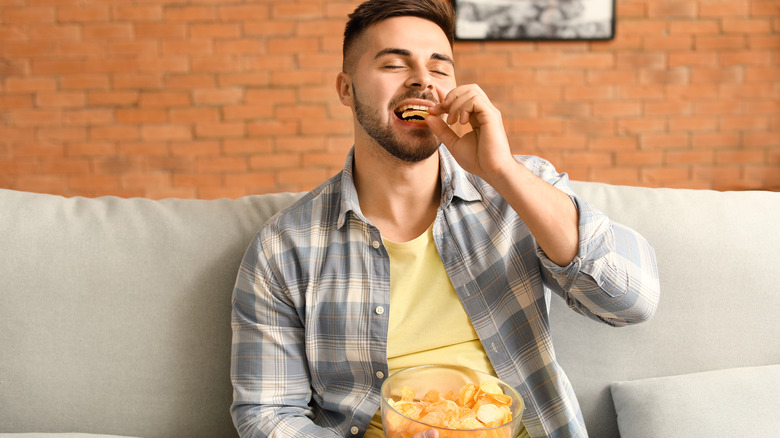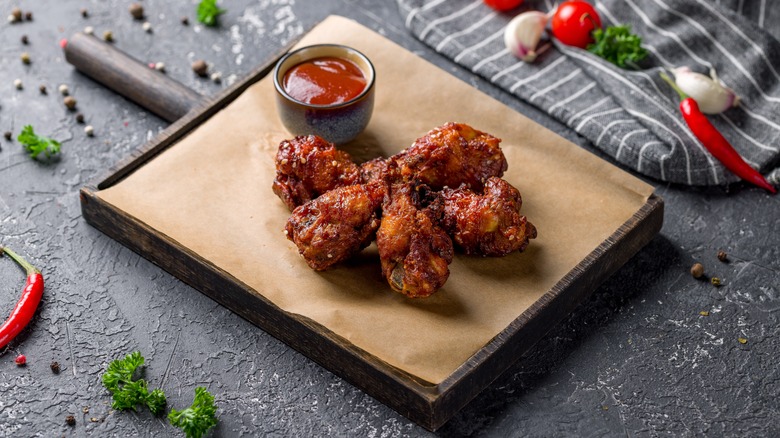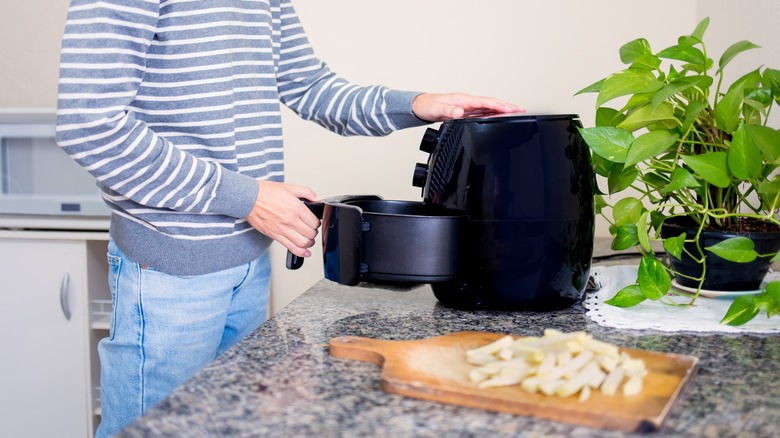
Craving french fries or chicken wings? It’s often said that food cravings can be triggered by stress, vitamin deficiencies, or sleep deprivation. For instance, some individuals turn to sugary, salty, or fatty foods when stressed, mentions Cleveland Clinic. Dehydration might lead to cravings for high-sodium foods, while insufficient sleep can increase your desire for high-fat or high-carb foods, explains Nebraska Medicine.
If fried foods are a staple in your diet, it might be wise to reconsider your eating habits. Frying not only reduces some of the nutrients in food but also encourages the formation of acrylamide. This compound, resulting from a chemical reaction between sugars and the amino acid asparagine, could potentially lead to cancer over time, warns the FDA. Additionally, deep frying increases the fat content of potatoes and other foods while altering dietary proteins and amino acids, according to clinical research published in Archivos Latinoamericanos de Nutrición.
A diet rich in fried foods may also contribute to mental health disorders, heart disease, and obesity. For example, a 2016 study indicated that individuals who regularly consume fried foods have a higher likelihood of experiencing depression, reports the journal Lipids in Health and Disease. Another study, published in the American Journal of Clinical Nutrition, suggests that fried food consumption can increase the risk of coronary artery disease and diabetes.
Considering these factors, it may be worth reconsidering before grabbing a bag of chips. However, first try to identify why you’re craving fried foods – and explore healthier alternatives to satisfy those cravings.
What causes cravings for fried food?

Fried foods are typically high in fat and sodium, but some also contain significant amounts of carbs. If you’re craving potato chips, you might actually be desiring more carbs or salt. Holistic nutritionist Stephanie Kay suggests that cravings for fried foods may indicate a deficiency in omega-3s and other healthy fats. Deep-fried bacon, fries, potato chips, and similar foods contain trans and saturated fats, which can lead to inflammation. Ideally, include nuts, seeds, avocados, olive oil, salmon, and tuna in your diet for a good source of healthy fats.
Interestingly, individuals with higher than average zinc intakes may be more likely to crave fried food, according to a 2016 study conducted at Texas Christian University. Zinc is crucial for protein synthesis, immune function, and other biochemical processes, but it’s needed only in small amounts. Excessive zinc can hinder copper absorption and lead to digestive issues, notes Mather Hospital. It’s advisable not to exceed 40 milligrams per day for safety.
Lastly, cravings for junk food, including fried foods, may also stem from sleep deprivation or emotional stress. Fried foods are highly palatable and activate the brain’s reward center. “Sugar makes us want to eat more sugar. Fat makes us want to eat more fat,” states registered dietitian Beth Czerwony to the Cleveland Clinic. “Our brains are chasing that pleasurable state of food euphoria,” she adds.
Manage food cravings without giving up flavor

Occasionally indulging in chicken wings is unlikely to harm your health, but it’s best not to make it a regular habit. In the meantime, consider healthier alternatives to the foods you crave. For instance, baked chicken wings can be just as satisfying as their fried counterparts. Pair them with homemade tzatziki, aioli, or garlic sauce for added flavor. Similarly, you can replace french fries with baked potato fries, zucchini fries, or kale chips. Air-popped popcorn, zucchini chips, and roasted seaweed are all healthier alternatives to potato chips.
Another option is to use an air fryer, as suggested by WebMD. Air-fried foods contain up to 80% fewer calories and about 90% less acrylamide compared to traditionally fried foods. This cooking method also reduces the formation of cholesterol oxidation products (COP), a group of compounds associated with heart disease, cancer, and atherosclerosis. Adding fresh parsley or chives can further decrease their COP content. However, air frying may reduce the polyunsaturated fats and increase COP levels in fish, as noted in a 2017 study in the Journal of Food Science.
As previously mentioned, cravings for fried foods may also be linked to stress and lack of sleep. If this resonates with you, try to incorporate more “me” time into your schedule. Regular exercise, meditation, deep breathing, and relaxing activities like walking, dancing, or cycling can all help alleviate stress, according to the National Alliance on Mental Illness.




